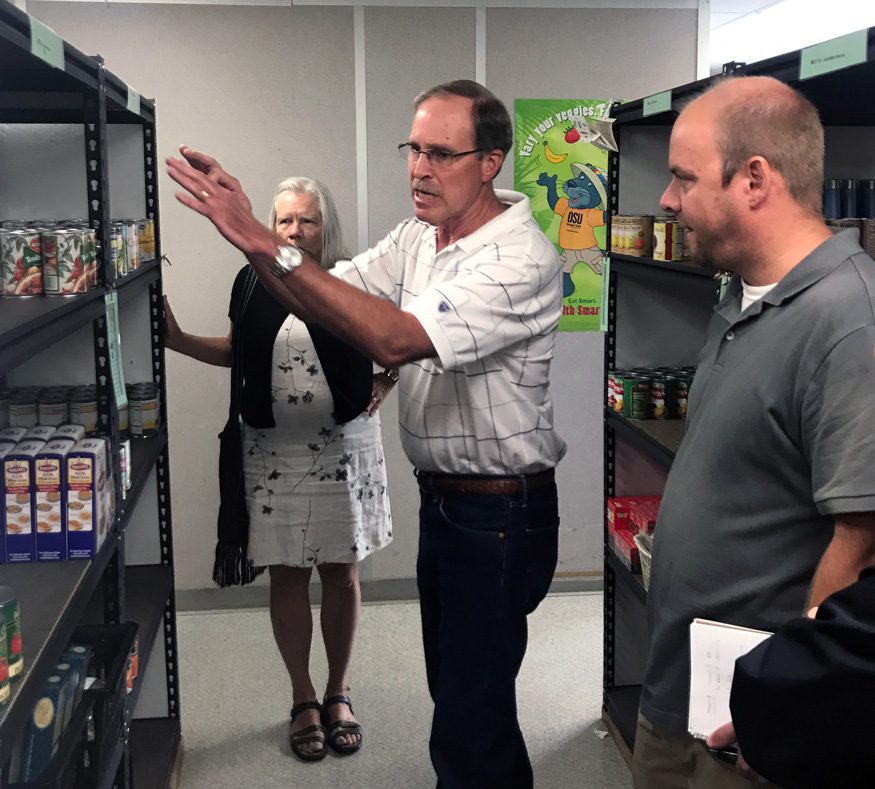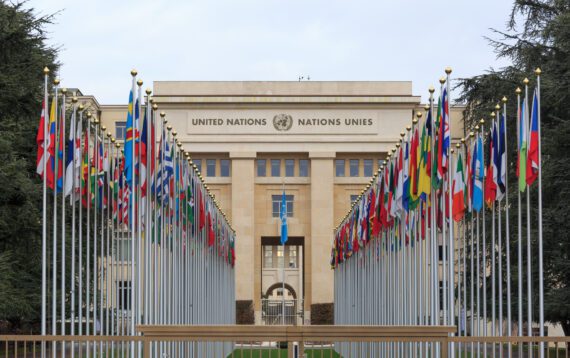By Robin Stephenson
Tucked in the corner of the parking lot at Holy Trinity Catholic Church in Beaverton, Oregon, a tiny pantry serves some very big needs in the community. In 2016, the Food Closet provided over 23,000 Oregonians with emergency food.
Recently, Bread leaders in the Archdiocese of Portland invited some of the staff of Sen. Jeff Merkley (D-Ore.) and Rep. Suzanne Bonamici (D-Ore.-01) to tour the pantry. They wanted to show the impact proposed federal budget cuts to programs like Supplemental Nutrition Assistance Program (SNAP) would have on local churches and families experiencing hunger. In August, Jagjit Nagra, Alexa Damis-Wulff, and Brian Plinski saw first-hand how churches are on the front lines of the fight against hunger.
“I’m no policy expert,” said Al Schmitt, who manages the pantry, to the three congressional staffers. “I just know the need, and you’ve got people barely hanging on.”
The Food Closet is open three days a week from 10:00 a.m. to 12:30 p.m. Church volunteers serve an average of 8 families every 30 minutes. In addition, Holy Trinity and four other churches run a backpack program that provides nutritious food to qualified students in 12 schools.
Hunger and the demand for food have grown during Schmitt’s tenure as pantry manager. “We have seen an average 10 to 12 percent annual increase in the number of people we serve in each of the past five years,” he said.
About half of the clients need both SNAP and the food pantry to get by until they get back on their feet. Many, he said, have jobs but they just don’t make enough to cover the cost of living. The number of seniors on a fixed income, not able to afford both high rents and food, are frequenting the pantry in greater numbers.
Eileen Sleva, who coordinates social justice ministries at Holy Trinity, set up the tour because she is deeply concerned about cuts to the safety net, including a proposed $150 billion cut to the SNAP program.
“We are doing our part to address hunger in Beaverton,” she said. “The church — our resources and volunteers — can only stretch so far. Cuts would mean families would go hungry.”
Roman Catholics from Oregon sent more than 1,000 letters to their members of Congress. They urged the lawmakers to prioritize the most vulnerable people as they make funding choices in the federal budget.
Schmitt stressed that we all need to do our part to help vulnerable families with few choices and even fewer resources. Leaning against a tower of boxes of food that would soon be transferred into hundreds of backpacks, he ended the tour with a question to the congressional staff: “Every day these families deal with their own Hurricane Harvey,” he said. “If you cut more now, where are they going to go?”
Robin Stephenson is senior manager for social media at Bread for the World.



